Better Understanding Consciousness
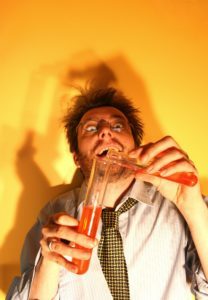 Watching mainstream science’s creaking and increasingly decrepit attempts to find a source of consciousness in the brain would be amusing, if it were not so sad. As recently as a decade ago, scientists still remained confident that since the brain must generate consciousness, of course that mechanism soon would be found; more and more now, though, the scientific community has begun to see that the answer to what they call “the hard problem” very sadly might forever elude them, just as the undeniable connection between quantum physics and the actions of the human mind may be forever a puzzlement. Oh, they still insist that the brain must somehow generate consciousness! But the smartest of them are coming to see that they may never figure out quite how it happens. Insofar as I have been able to determine, there still is no mainstream scientific theory that makes consciousness the ground of reality.
Watching mainstream science’s creaking and increasingly decrepit attempts to find a source of consciousness in the brain would be amusing, if it were not so sad. As recently as a decade ago, scientists still remained confident that since the brain must generate consciousness, of course that mechanism soon would be found; more and more now, though, the scientific community has begun to see that the answer to what they call “the hard problem” very sadly might forever elude them, just as the undeniable connection between quantum physics and the actions of the human mind may be forever a puzzlement. Oh, they still insist that the brain must somehow generate consciousness! But the smartest of them are coming to see that they may never figure out quite how it happens. Insofar as I have been able to determine, there still is no mainstream scientific theory that makes consciousness the ground of reality.
This fact is in itself astonishing! The idea that consciousness predates matter is not new. In fact, some of the greatest scientists of the past century have known or suspected that consciousness had to be primary. For example, Max Planck won the 1918 Nobel Prize in Physics as the father of quantum mechanics. In 1931 Dr. Planck said, ”I regard consciousness as fundamental. I regard matter as derivative from consciousness. We cannot get behind consciousness. Everything that we talk about, everything that we regard as existing, postulates consciousness.” He said in 1944, “As a man who has devoted his whole life to the most clear headed science, to the study of matter, I can tell you as a result of my research about atoms this much: There is no matter as such. All matter originates and exists only by virtue of a force which brings the particle of an atom to vibration and holds this most minute solar system of the atom together. We must assume behind this force the existence of a conscious and intelligent mind. This mind is the matrix of all matter.”
Albert Einstein, another Nobel laureate, never was quite so blunt as Dr. Planck, but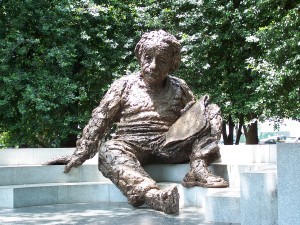 apparently he had the same suspicions. For example, he said, “Our experience of separation may be an illusion of consciousness.” And, “The world as we have created it is a process of our thinking. It cannot be changed without changing our thinking.” Physicist Sir James Jeans simply said, “The universe begins to look more like a great thought than a great machine.”
apparently he had the same suspicions. For example, he said, “Our experience of separation may be an illusion of consciousness.” And, “The world as we have created it is a process of our thinking. It cannot be changed without changing our thinking.” Physicist Sir James Jeans simply said, “The universe begins to look more like a great thought than a great machine.”
The problem is that science is not the open-minded search for the truth that we so fondly wish it were. More than a century ago, the mainstream scientific gatekeepers – the university departments and the peer-reviewed journals – decided to make materialism a “core scientific dogma” in order to protect what they saw as the broad field of pure inquiry from the corrupting influence of religion, and to insulate scientists from any obligation to investigate the flood of good communications from the dead that were then being received. Those long-ago gatekeepers’ intentions seem to have been honorable when they took this step; but the plain fact is that anything based on a dogma is a belief-system, by definition. And a belief-system, be it religious or secular, will gradually become a fly in amber, insulated from new ideas that might potentially violate its dogmas and therefore more and more completely wrong.
Most honest scientists have long since come to see that materialism is a blind alley. In fact, even matter itself is not material in the sense of being actually 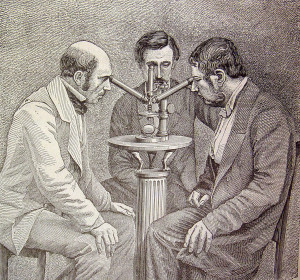 solid! But with a century of scientific effort on the books that was largely based on a dead-end dogma, it is very hard for our scientific gatekeepers to pull an Emily Litella now and just say cheerily, “Never mind!”
solid! But with a century of scientific effort on the books that was largely based on a dead-end dogma, it is very hard for our scientific gatekeepers to pull an Emily Litella now and just say cheerily, “Never mind!”
Although most scientists cannot yet admit it, the best of them know that the jig is up. It has gotten to the point where almost the only ones defending materialism any more are sad and entirely closed-minded workhorses like Richard Dawkins, just old polemicists who have devoted their lives to defending materialism and are at this point reduced to trying to debunk bits of the tidal wave of contrary evidence that now engulfs them. Here is what the great Rupert Sheldrake has to say about one of his encounters with Dawkins.
Fortunately, there are some wonderful young scientists already working to put together humankind’s glorious post-dogmas future! The most promising of these is Bernardo Kastrup, a Dutch Ph.D. computer scientist with a specialty in artificial intelligence who is doing some amazing work. Four years ago, still in his thirties, he came up with a preliminary consciousness-based theory of everything. Then on April 29, 2019, Dr. Kastrup was awarded a second Ph.D., this one in the philosophy of mind and ontology. His new degree was awarded by no less than Radboud University, which is arguably the best classical university in the Netherlands. Bernardo’s thesis is a companion volume to his recent book, The Idea of the World: A Multi-Disciplinary Argument For the Mental Nature of Reality. And fortunately for us, his P.D. defense was in English, now science’s lingua franca. It’s technical, but it is spellbinding. Enjoy!
The greatest living scientist in this field is in fact not a traditional scientist. I first met Dr. R. Craig Hogan in 2008, when his wonderful book, Your Eternal Self, was just out; and I was so bowled over by his work that I invited him to Austin and sponsored  his presentation in a substantial venue. We have become good friends, and he has been my guest on Seek Reality twenty-six times in the past six years. Amazingly, Craig is so natively brilliant, so expert in so many areas, that we have discussed something different in every one of those twenty-six Seek Reality interviews! Here is a lovely series of videos by Craig which demonstrate (a) that the mind is not inside the brain; (b) that the brain is unnecessary; and (c) that in fact there is nothing but mind and experience.
his presentation in a substantial venue. We have become good friends, and he has been my guest on Seek Reality twenty-six times in the past six years. Amazingly, Craig is so natively brilliant, so expert in so many areas, that we have discussed something different in every one of those twenty-six Seek Reality interviews! Here is a lovely series of videos by Craig which demonstrate (a) that the mind is not inside the brain; (b) that the brain is unnecessary; and (c) that in fact there is nothing but mind and experience.
In fact, nothing else but consciousness exists. Our minds are part of that one consciousness, not as separate bits but in one indivisible whole; and since this is true, our minds are eternal. We cannot say this often enough! Your mind is where you always live, not only now but forevermore.
So the stranglehold that mainstream science has continued to hold on the truth about the primacy of consciousness is weakening, but it remains in place. And until trained scientists are free to study consciousness as more than the product of matter, they cannot be of much help to us in answering the most important questions. What is consciousness, anyway? How is it that consciousness brings forth reality? Since 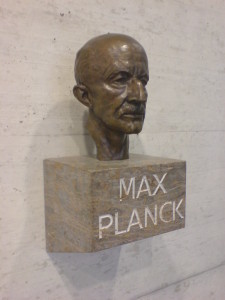 consciousness is all that exists, shouldn’t we try to better understand it? We won’t have definitive answers until we have the help of working physicists, but here is what the evidence indicates is true about whatever consciousness might be:
consciousness is all that exists, shouldn’t we try to better understand it? We won’t have definitive answers until we have the help of working physicists, but here is what the evidence indicates is true about whatever consciousness might be:
Consciousness is primary. As Max Planck noted a century ago, and as Bernardo Kastrup said as he defended his Ph.D. thesis this spring, we don’t need to look for a source of consciousness because it is primary. As Dr. Planck said, we cannot get behind it.
Consciousness is something like a form of energy. And like physical energies, it vibrates. It exists in a range of vibrations that we experience from fear at the slowest to love at the most rapid, and the higher its vibratory rate is, the more powerfully creative it is. At its highest vibration, the creative power of consciousness is apparently infinite.
Everything that we think of as real is not just created by consciousness, but in fact it is composed of consciousness. Rocks, trees, and every living thing: it is all consciousness. There is nothing else. Essentially, everything that we think exists is, as Dr. Jeans said, very much like part of a gigantic thought.
Consciousness has neither time nor space. In this, too, consciousness is like a thought. How big is a thought? How much time does it take?
Life is probably an aspect of consciousness. Another thing that frustrates
 scientists is the fact that, try as they might, they cannot figure out how life arose spontaneously from some primordial soup. The answer seems to be nothing more complicated than the fact that the soup itself was composed of consciousness, and life is consciousness, so the property of living was something inherent in that primordial soup itself.
scientists is the fact that, try as they might, they cannot figure out how life arose spontaneously from some primordial soup. The answer seems to be nothing more complicated than the fact that the soup itself was composed of consciousness, and life is consciousness, so the property of living was something inherent in that primordial soup itself.All human minds are part of one consciousness, not as separate units but inextricably as one whole. This is the sort of thing that more advanced beings not in bodies would tell us not to puzzle over, since we won’t understand it until we return home and we again have access to our vast, eternal minds. For now, only know this is apparently true.
So then, what is consciousness? I will share with you again the best definition I have yet seen. Consciousness is an infinitely powerful and infinitely creative energy-like potentiality without size or form, alive in the sense that your mind is alive, highly emotional and therefore probably self-aware. That is not a scientific definition, but it will do until mainstream scientists begin to get a clue and can pitch in and help!
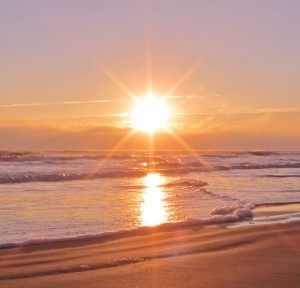 I hope you will take the time to watch all the videos linked above. In doing that, you will learn from an elder statesman so spiritually advanced that there are few at his level still living in a body. You will be privileged to meet, too, a brilliant young man who will be a leading contender for the eventual Nobel Prize to be awarded for a consciousness theory of everything. And in watching them, you will learn a lot more about consciousness than even the most illustrious working physicists could tell you now!
I hope you will take the time to watch all the videos linked above. In doing that, you will learn from an elder statesman so spiritually advanced that there are few at his level still living in a body. You will be privileged to meet, too, a brilliant young man who will be a leading contender for the eventual Nobel Prize to be awarded for a consciousness theory of everything. And in watching them, you will learn a lot more about consciousness than even the most illustrious working physicists could tell you now!
The post Better Understanding Consciousness appeared first on Roberta Grimes.



